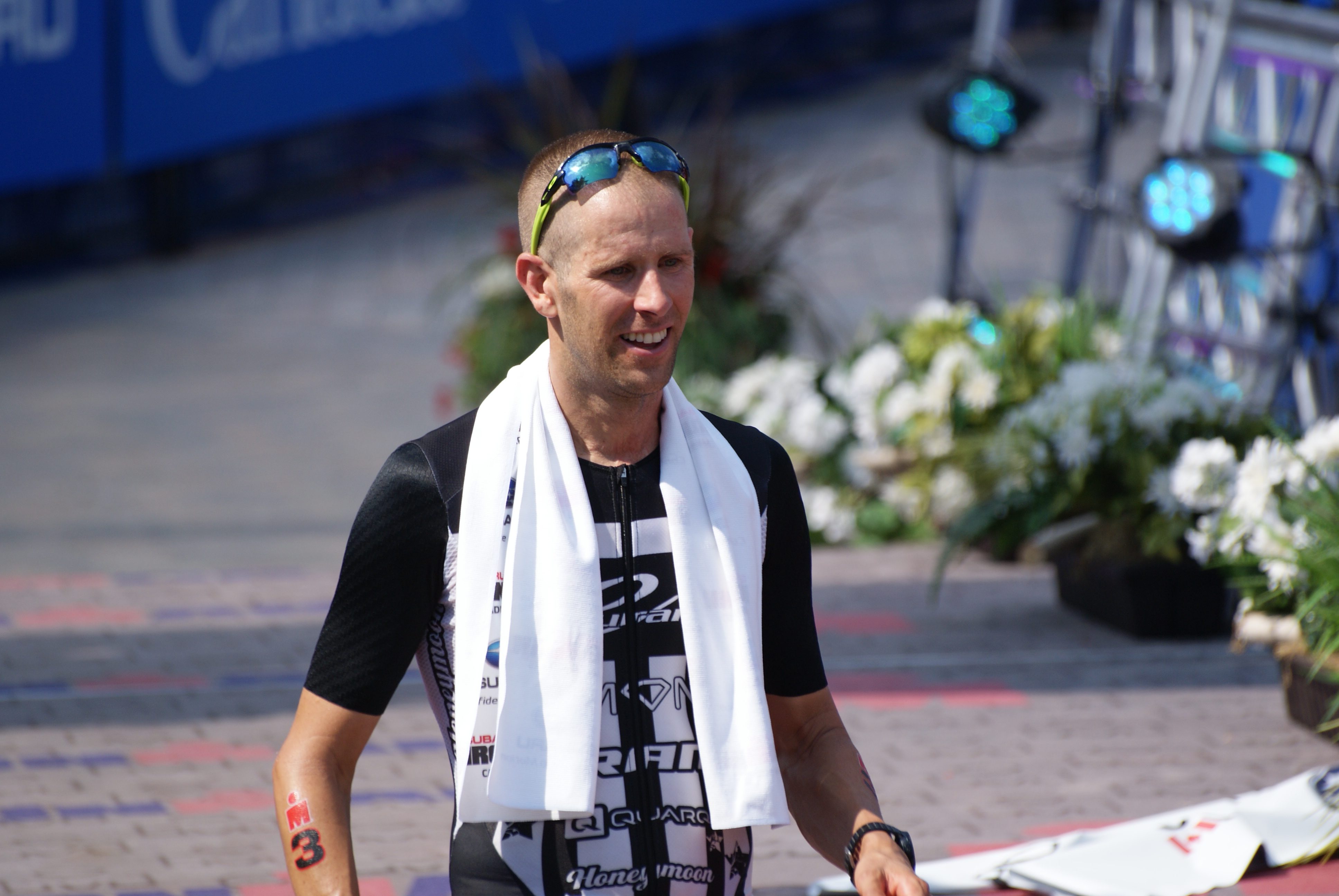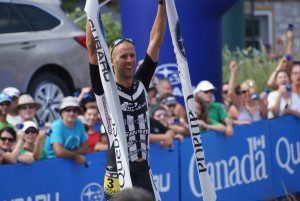Interview: Jordan Rapp Post Tremblant


Jordan Rapp hadn’t won an Ironman race since taking the Ironman North American Championship in The Woodlands, Texas in 2012. His impressive win at Ironman Mont-Tremblant was a huge confidence boost for the 35-year-old who now makes Thousand Oaks, California home.
Rapp has some Canadian connections: his wife, Jill Savege, represented Canada at the 2004 Olympic triathlon. We caught up with Rapp right after his win in Quebec last Sunday.
TMC: This has been a couple of years coming – how satisfying was it to get out there and get things done today?
Jordan Rapp: You begin to think, a little bit, has my body just abandoned me, so to show up on the day, it’s a huge feeling and a huge relief. Especially for all the people who have stuck with me through the low points – sponsors, especially my wife, this hasn’t been easy on them – it was great to deliver for them.
You talked about your kids at the finish line when you were interviewed – about racing with number three and thinking about your three children. You were thinking about them a lot today.
Yes, you want to keep a positive attitude out there. They’ve sacrificed a lot so I can be out here and do what I do. I don’t know if it means a lot to them whether I win or come 50th, but it makes it easier to take some time off. One of the most satisfying things was in the build up for this race I took one full day off a week to dedicate to family and it seems like it paid off in a big way.
You’ve had more than your fair share of struggles to get through over the years. You were almost killed when you were hit by a car a few years ago. Compared to lying on the side of the road almost dying, a couple of years of not-so-great performances isn’t the end of the world.
Yes, but it’s not always that easy. When you get hit by a car you have something to blame. When you’re not firing on race day and you’re firing in training, and when you’re injured a little bit, when you’re just struggling, sometimes it’s harder because you don’t have something to rail against. It’s just you against you. In some ways it was easier to come back from the car wreck because I could channel my anger into that damn car. It’s harder when you’re just beating yourself up over and over again. They’re all challenges and I am glad to be able get that monkey off my back a little bit.
What was the feeling like over the last 10 km as you realized you were going to get this done?
It was a huge relief to know that if I kept ticking things over at a (for me) pretty easy pace – I figured if I could hold 4:20/ km no one was going to catch me, especially in conditions like this. I felt like it was a pretty good run. In the conditions, the heat and humidity, it was pretty nice to have the lead that I had – 20 minutes or so.
You have to feel good about this performance leading up to Kona.
Kona is a different animal. You are certainly not going to have a 20 minute lead in Kona, which is a big difference. I feel like my swim is in a good place, my bike is in a good place. I knew that the next step to Kona would be improving on my run. Looking at the work I did coming in I feel like I still have work to do on the run, but I also feel like I have work that I can do on the run.
